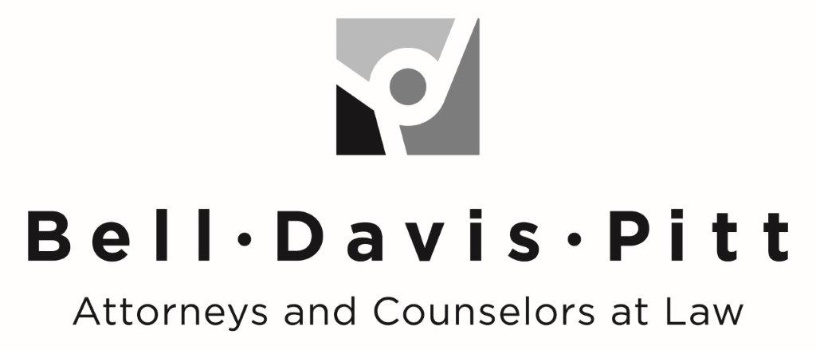Selling Online to Survive the Pandemic? Don’t Forget to Protect Your Business
Friday, April 02, 2021 | By: Bell Davis & Pitt
It’s been over a year since the world stopped and COVID-19 sent businesses, schools, and families into lockdown. If your business was able to adapt by selling online—perhaps for the first time—congratulations. You have proven yourselves adaptable, nimble, and adept at mastering this brave new world.
Now it’s time to consider what you may have overlooked in the rush to save your business during the pandemic.
You’re Global Now!
If your business was purely local or your sales were primarily in one state or only a few states, you may be surprised to learn that once you started selling on the Internet, you went global. Of course, you don’t have to sell to that customer from Nepal who found your website. But the mere fact that you were found by someone in Nepal indicates that you need to give some serious thought to protecting your brand.
Perhaps you’ve been putting off registering your trademark(s) due to budgetary constraints. But you’re more visible online, so you’re also more prone to trademark pirates, cybersquatters, and typosquatters. Even if you’ve secured your brand as a domain name, you’ll have a hard time shutting down similar domain names without a U.S. federal registration for your trademark. For that reason, it’s important to obtain federal trademark registration through the U.S. Patent and Trademark Office (USPTO).
In addition, trademark pirates may decide to register your trademark in their country, particularly if they think your brand is successful or has potential. You can’t register your trademark in every country of the world, but you should give careful consideration to registering your mark:
- In neighboring countries, such as Canada and Mexico;
- In countries where you might have sales in the foreseeable future;
- In countries where you have contract manufacturers or from which you source components of your products;
- In countries known for rampant trademark piracy.
Website Terms and Conditions
Does your website have “Terms and Conditions” or “Terms of Use” that are sufficient to protect your business? You may want to include these important provisions:
- Privacy Policy
- Not only does a policy demonstrate to your customers that you care about their privacy and tell them how you use or share their information, it may be required under certain circumstances.
- Protecting children
- The Children’s Online Privacy Protection Act has been in place since 1998 and is enforced by the Federal Trade Commission (the “FTC”). Do you comply? Even if you do not intend to collect personal information from individuals under the age of 13, you must have a written privacy policy in place that addresses this issue if you know that children sometimes visit your site.
- Data security
- Most states require businesses to have written policies on the security and eventual destruction of “personally identifiable information.” If you sell online, you’re collecting credit card information and other personally identifiable information, so you need to be sure you comply and tell your customers what you do with their information.
- Limitations on liability
- It’s always a good idea to limit your liability to some specified amount (such as the amount of any purchase) and to eliminate the possibility of any special, incidental, consequential, or punitive damages.
- Disclaimers of warranties
- While you want to stand behind your products, you don’t want a disgruntled buyer unjustifiably to complain about your merchandise or its quality. Specifically disclaiming warranties of merchantability and fitness for a particular purpose could help in this regard.
These are just some of the issues to consider when selling online. For a more comprehensive evaluation and audit of your online presence, consult an experienced attorney.
If you have any questions, please contact IP attorney Art DeBaugh.






0 Comments